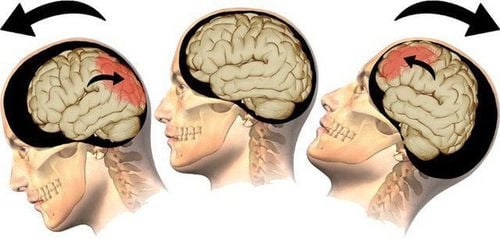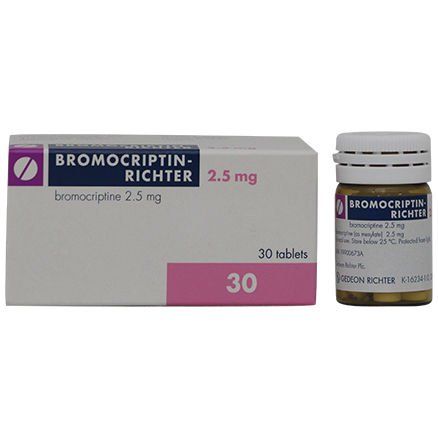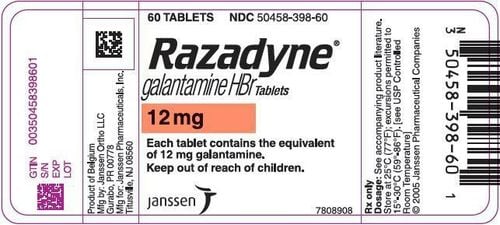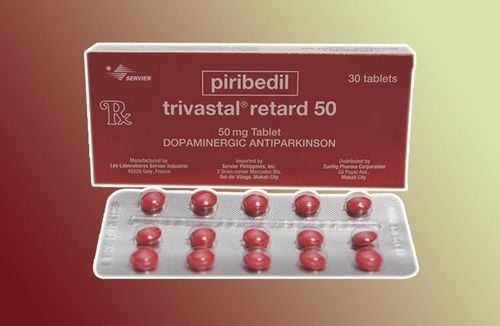This is an automatically translated article.
Posted by Doctor Vu Dung Kien - Department of General Internal Medicine - Vinmec Times City International Hospital
The researchers suggest: “12 modifiable risk factors are responsible for approximately 40% of dementia cases worldwide, so this could theoretically be prevented. prevent or slow the progression of dementia”.
1. Factors that prevent dementia
In its 2020 update, the Lancet Committee on Dementia Prevention, Intervention, and Care added excessive alcohol consumption, Traumatic brain injury (TBI), and air pollution to Nine modifiable risk factors for dementia were modeled in 2017, namely low education, hypertension, hearing impairment, smoking, obesity, depression, low exercise, diabetes, and low social contact.
The researchers suggest: “12 modifiable risk factors are responsible for approximately 40% of dementia cases worldwide, so this could theoretically be prevented. prevent or slow the progression of dementia”. “The potential for prevention is high and may be higher in low- and middle-income countries, where dementia is more common.”

2. Limiting alcohol use to prevent dementia
Heavy drinking has been linked to brain changes, cognitive decline and dementia. A five-year French study of 31 million hospital admissions found that alcohol use disorders were associated with an increased risk of dementia (hazard ratio -HR for women 3.3; HR for men is 3.4). The association was particularly evident in the earlier-onset dementia group (≤65 years), where 56.6% of patients had an alcohol use disorder.
On the other hand, a systematic review of 45 studies on light to moderate alcohol consumption reported a reduced risk of dementia compared with heavy drinking (risk ratio, 0, 0). 7). Drinking <21 units of alcohol per week may reduce the risk of dementia. The Whitehall study, UK, with 23 years of follow-up, included 9,087 participants aged 35–55 years at baseline. Results showed that drinking >21 units per week and long-term abstinence were associated with a 17% increase in dementia compared with drinking <14 units per week. Drinking >14 units per week is associated with right hippocampal atrophy on MRI.

Traumatic Brain Injury (TBI) is associated with diffuse hyperphosphorylation. A cohort study (Denmark) of nearly 3 million people aged ≥ 50 years, followed for a mean of 10 years, found an increased risk of dementia (HR, 1.2) and Alzheimer's disease (HR, 1.2) associated with TBI. Notably, the risk of dementia was highest 6 months after traumatic brain injury (HR, 4.1) and increased with the number of injuries in those with traumatic brain injury (HR for 1 TBI, 1.2; HR for ≥5 TBI, 2.8).
A cohort study of 28,815 older adults with concussion found a doubling of dementia risk, with one in six developing dementia during an average follow-up of 3 ,9 years. However, people taking statins had a 13% lower risk of dementia than those not taking statins, because statins can reduce brain edema associated with injury, oxidative stress, amyloid protein aggregation, and inflammation nerve. Air pollution and particulate pollutants are associated with poor health outcomes, including those associated with noncommunicable diseases. Animal models suggest that airborne particulate pollutants accelerate neurodegeneration through cerebrovascular and cardiovascular disease, Aβ deposition, and amyloid precursor protein processing.
High concentrations of nitrogen dioxide (NO2) (> 41.5 μg/m3; adjusted HR, 1.2), fine dust (PM 2.5) from traffic exhaust (HR, 1.1) and (PM) 2.5) from household smoke (HR, 1.6 at concentrations of 1 μg/m3 or higher) was associated with increased rates of dementia. A systematic review of studies through 2018, including 13 longitudinal studies with 1–15 years of follow-up on air pollution exposure and dementia, found that exposure to fine dust (PM 2.5); Nitrogen dioxide (NO2) and carbon monoxide (CO) have both been linked to an increased risk of dementia.

Emphasize: "It's never too early and it's never too late in life to prevent dementia." “Specific actions for [new] risk factors include: Reducing exposure to air pollution, preventing head injuries, and limiting alcohol use to <21 units per week.” 01 alcohol unit is equivalent to 10 grams of pure alcohol contained in the drinking solution. Thus, 01 alcohol unit is equivalent to 01 cup of 330ml draft beer, 3/4 bottles/can of 330ml beer (5% alcohol type), 01 cup of 30ml brandy (40 % alcohol type) or 01 glass of 100ml wine. (type 13.5% alcohol)
Vinmec International General Hospital with a system of modern facilities, medical equipment and a team of experts, doctors with many years of experience in medical examination and treatment, Patients can completely rest assured examination and treatment of dementia at the Hospital.
Reference source: specialty.mims.com
Please dial HOTLINE for more information or register for an appointment HERE. Download MyVinmec app to make appointments faster and to manage your bookings easily.
MORE
Best foods to boost your brain and memory Dementia in the elderly: What to know Diagnosis and treatment of dementia in the elderly














